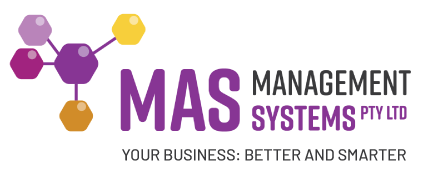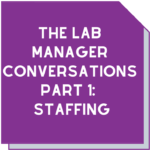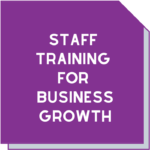6 Ways competence can help us work smarter

In a lab, we work long hours and are highly competent. But there is often little recognition of the dedication to our work
It’s Go Home on Time Day. The day shines a spotlight on the maldistribution of working hours and the scale of unpaid overtime worked by Australians.
The Australia Institute has released the results from this year’s survey of the Australian labour market. Apparently, on average, Australians spend 281 hours per year per worker, or more than 7 standard 38-hour work weeks in completing unpaid work in their employment. That’s a lot of time gifted to organisations and the national economy! The other interesting fact is that there is also a good deal of underemployment, with one in three workers (35%) in Australia reporting that they wanted more paid hours.
It got us thinking, what are some of the things that contribute to this state of affairs? Of course, there is a “Quality” answer to that question!
The survey said that one of the reasons is the insecure nature of casual or temporary working positions. It means that people who want to work more simply can’t access increased hours. That’s usually an economic factor. Or is it purely economic?
Scratch beneath the surface in many organisations and there may well be issues to do with the skills of employees in the labour marketplace. Jobs and Skills Australia tells us Technicians and Professional occupations (health, engineering, information communication technology (ICT), and science roles) have the highest shortages, particularly in regional and remote areas. It’s quite likely that this shortage also contributes to why there are so many overworked people in labs across Australia,
One way to tackle this is to have the resources we do have to be more productive. That doesn’t mean taking the whip out to force people to do more. What about if we could make fewer mistakes and improve productivity through other means?
Which brings us to the topic of staff resources.
In today’s dynamic and competitive professional landscape, the demand for competent individuals is more pronounced than ever. Competence in the workplace is not just a desirable trait; it is a fundamental necessity for personal and organisational success. What are some of the ways paying attention to competence can help us out of our current situation of overwork?
Achieving Professional Excellence
 Competence is the cornerstone of professional excellence. Individuals who possess the necessary skills, knowledge, and abilities to excel in their roles are more likely to make significant contributions to their organisations.
Competence is the cornerstone of professional excellence. Individuals who possess the necessary skills, knowledge, and abilities to excel in their roles are more likely to make significant contributions to their organisations.
Whether it’s mastering technical skills, staying abreast of industry trends, or developing problem-solving capabilities, competence is the key to achieving and sustaining excellence in the workplace.
The pathway to competence is through training. Choosing relevant training programs means improving the skills and knowledge of your employees to meet changes in your industry. As well as greater staff productivity and efficiency, added improvements may add to the profits of an organisation.
But it’s not just about how to do their job. Training could also include work ethics and human relations. Why? Because it shows that a company is interested in more than just the bottom line.
Enhancing Organisational Performance
Competent employees are the driving force behind high-performing organisations. When individuals are adept at their jobs, they contribute to the overall efficiency, productivity, and success of the team and the company. Competence fosters a positive work environment where employees can collaborate effectively, leading to improved outcomes and a competitive edge in the market.
In a lab, we want to deliver consistent results. Training and competence help us with this consistency, and increase in productivity. Mistakes and rework are minimised, which means we have more time to do all of the tasks we need to do and should be able to go home on time without having to repeat those tasks.
In-house training is particularly valuable when numbers of staff are carrying out similar tasks and helps to deliver these consistent results. However, it’s also beneficial when delivering information based on Standards or corporate compliance. This ensures staff are all on the same page with the company’s approach.
Trained staff = less supervision
Supervisors are competent people. Having more supervisors than workers just because the workers are not sufficiently competent is economically challenging. Obviously, training staff doesn’t mean that supervision can be eliminated completely. And ‘learning by doing’ is the best way of embedding practices. However, pointing an employee in a direction and expecting good outcomes will happen by trial and error is a recipe for disaster.
Knowing that your staff have been through a structured, consistent, and systematic training programme means that supervision can be significantly reduced. Which means you could need fewer hours spent on supervision and more hours on work that is more productive for the lab.
Adapting to Change
 The business landscape is constantly evolving, with technological advancements, market shifts, and global changes shaping the way organisations operate. Competent individuals are better equipped to navigate and adapt to these changes. Their ability to acquire new skills and knowledge enables them to stay relevant in their roles and contribute to the organisation’s resilience.
The business landscape is constantly evolving, with technological advancements, market shifts, and global changes shaping the way organisations operate. Competent individuals are better equipped to navigate and adapt to these changes. Their ability to acquire new skills and knowledge enables them to stay relevant in their roles and contribute to the organisation’s resilience.
So that might mean some training is warranted in some conventional and unconventional areas. Sending people to training on the latest in your industry sector is something many labs invest in. Giving them training in a completely new area, like cybersecurity, risk management, and ethics is something not many labs have done. These areas are becoming increasingly important to deal with the changes and challenges of work.
Building Confidence and Credibility
Competence breeds confidence. Individuals who are proficient in their work exude a sense of confidence that is not only reassuring to themselves but also inspires trust in colleagues, superiors, and clients. This credibility is invaluable in building professional relationships, securing opportunities, and advancing one’s career. It’s also one of the fundamental concepts that accreditation relies on.
Confidence doesn’t come from merely doing some training. Effective training doesn’t just mean walking out of a room (or a Zoom session) with a course booklet and papers clutched in your hand.
Of course, it should improve skills and knowledge people can take away and implement in their roles immediately.
But training should also prepare employees to move into higher roles or take on more responsibilities.
Increased training also means employees are more likely to be able to tackle any issues that arise in their role. And that confidence means they’ll be more likely to take calculated risks and find innovative solutions.
Although it makes sense to encourage those moving into higher roles, leadership skills training should be made available to all staff. This shows you have confidence in your people and want to promote them internally.
Fostering Innovation
 Competent individuals are more likely to be innovative thinkers. They possess the foundational knowledge required to think critically, identify opportunities for improvement, and contribute fresh ideas to the organisation. Competence fuels a culture of innovation, propelling companies forward and ensuring they remain at the forefront of their industries.
Competent individuals are more likely to be innovative thinkers. They possess the foundational knowledge required to think critically, identify opportunities for improvement, and contribute fresh ideas to the organisation. Competence fuels a culture of innovation, propelling companies forward and ensuring they remain at the forefront of their industries.
Investing in a staff training program is an immediate benefit to your organisation. People will do things correctly the first time and there’s the consequence of reduced waste in your business. But more importantly, your staff will know that you’re interested in them, their growth and morale.
Competence is not just a desirable attribute; it is a prerequisite for success. It can lead to greater productivity and efficiency. And, that means you have a better chance of going home on time, not just for one day, but every day of the year!
What to know how to improve competence in your lab? Give us a call on 0411 540 709, or drop us a message at info@masmanagementsystems.com.au. We can help you set up a plan to improve competence in your lab and can deliver some of the training you need to upskill your staff.
Remember, you don’t have to do this alone!
People who liked this also read:




